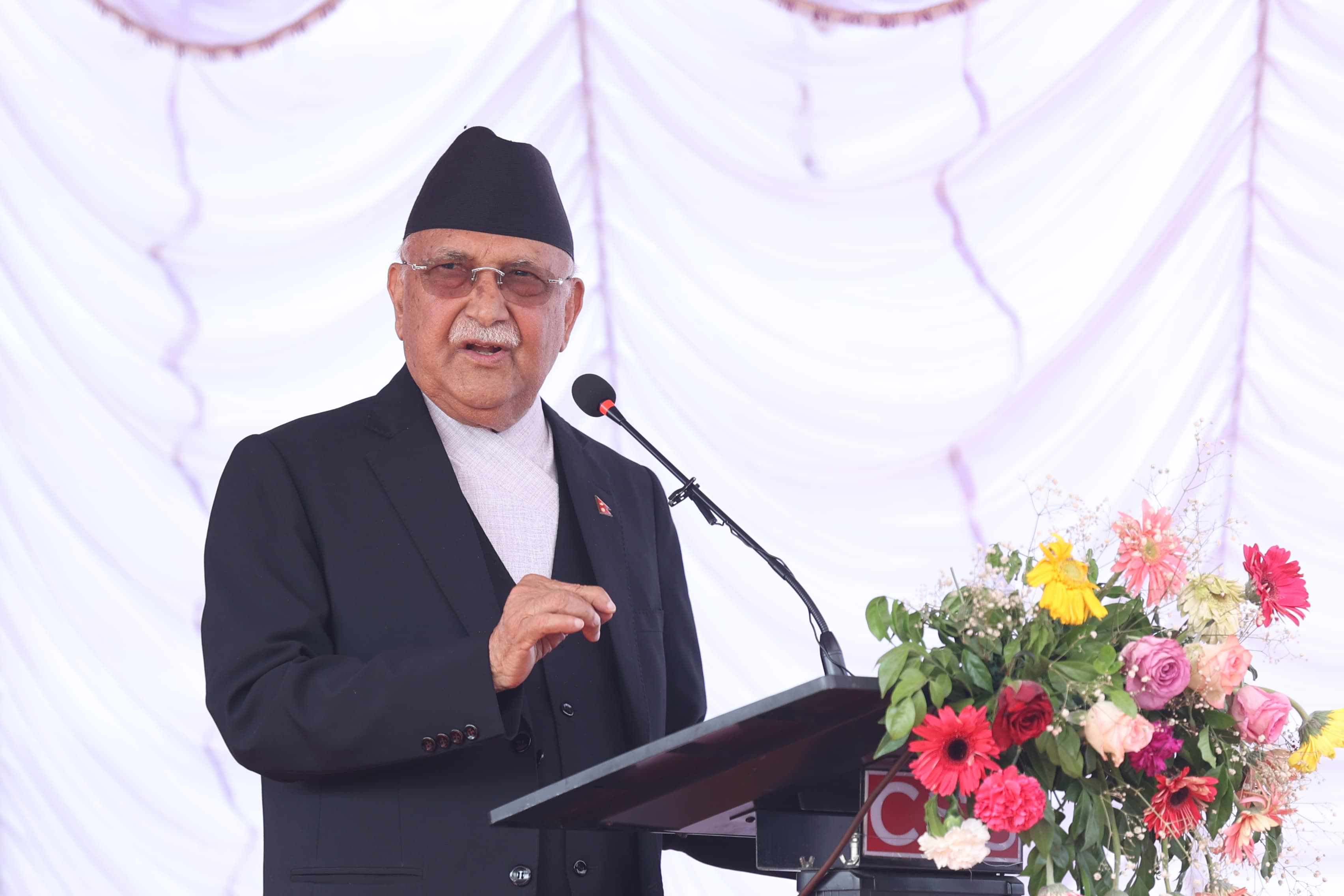Study report on Pokhara International Airport submitted to PAC
The parliamentary sub-committee submitted its report on Pokhara International Airport to the Public Account Committee of the House of Representatives.
Rajendra Lingden, who led the sub-committee, carried out a thorough investigation on the construction process of the airport and submitted the report to the PAC.
Arjun Narsing KC, Aman Lal Modi, Gokul Prasad Banskota, Janardan Sharma, Tara Lama Tamang, Deepak Giri, Dev Prasad Timilsina, Prem Bahadur Ale and Ram Krishna Yadav were the members of the sub-committee.
The report will be discussed in the meeting of the PAC.
The sub-panel had conducted the study and monitoring of the airport in response to the questions raised from multiple sectors over the irregularities in the construction process. The monitoring was done as per PAC's decision made on June 9, 2024.
During the field visit and inspection, the sub-committee held discussions with stakeholders, locals and experts.
The report was prepared incorporating multifarious issues ranging from physical infrastructure, equipment, runway, to vicinity.
The airport was constructed at the cost of Rs 22 billion with the loan from EXIM Bank of China. The construction was completed on December 29, 2022.
Although the facility was officially launched in January 2023, the airport has not witnessed international flights except few chartered ones. Only domestic service is available there.
The sub-committee report would divulge the problems that plagued the construction process, which is expected to help the government take further decisions on it, the sub-committee said.
US lays out plans to hit Chinese ships with port fees
The Trump administration is set to impose new port fees on Chinese ships in a bid to strengthen the US shipbuilding industry and counter China's market dominance.
Effective in 180 days, these regulations will charge Chinese ship owners based on cargo weight, container count, or vehicle capacity, BBC reported.
Bulk carriers will incur a fee of $50 per ton, increasing by $30 annually for three years. Container ships will face charges of $120 per container, while Chinese-built vessels will pay $18 per ton. Non-US built car carriers will be charged $150 per car, with a maximum of six charges per ship annually.
A second phase of the regulations will launch in three years, favoring US-built LNG ships and introducing stricter rules over a 22-year period, according to BBC.
Analysts warn that these measures, combined with recent tariffs of up to 145% on Chinese imports, are already disrupting international trade, causing congestion in European ports and increasing costs for US consumers.
Ukraine and US sign 'memorandum of intent' on minerals deal
Ukraine has signed a memorandum of intent with the United States regarding a minerals deal, marking a step toward an economic partnership agreement.
According to the BBC, Yulia Svyrydenko, the minister of economics, stated that the agreement might possibly establish an investment fund for the country's reconstruction. Officials in the United States hope to reach a formal deal by the end of next week. Earlier talks were derailed by a public disagreement between Trump and Zelensky during a February White House meeting.
Svyrydenko shared pictures of the signing on X to announce it.The agreement aims to secure US access to Ukraine's critical minerals and oil resources while offering the prospect of a US security guarantee in the event of a ceasefire with Russia, BBC reported.
Saudi defence minister visits Tehran before Iran-US talks
Saudi Defence Minister Prince Khalid bin Salman met with senior Iranian officials in Tehran ahead of the second round of nuclear talks between the US and Iran. The visit comes as regional tensions rise and there are mounting concerns about potential conflict if diplomacy fails, Al Jazeera reported.
Prince Khalid conveyed a letter from King Salman to Iran's Supreme Leader, Ayatollah Ali Khamenei, and addressed bilateral relations and mutual interests. He later verified the meeting on social media.
Riyadh has expressed support for the US-Iran talks, highlighting the need of diplomatic measures to resolve regional and international conflicts, according to Al Jazeera.


















